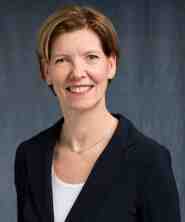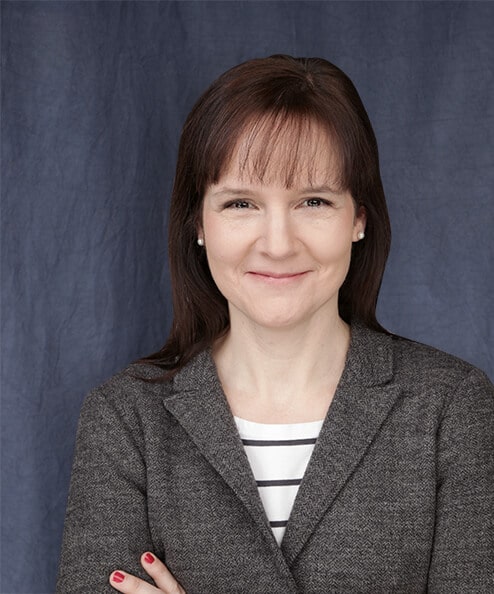Insights into the influence of Covid-19 on the current and post-pandemic Life Sciences & Healthcare market
The word “quarantine” is derived from the Italian word quarantena, the 40-day isolation period demanded during the Middle Ages before a ship was permitted to enter port, in order to protect the port city from disease. Humans are social animals, and as we endure our 40 days of self-isolation and lockdown across the globe, we are starting to feel stressed and to long for some short to mid-term perspectives.
The following observations were made by the international Life Sciences team at Pedersen & Partners:
Short-term and long-term winners
- Biopharmaceutical companies have jumped on the urgent need for drugs, including vaccines for immunisation and medications to treat the severe effects of Covid-19. According to the World Health Organisation, at least 70 treatments and vaccines are currently in development. The leading European vaccine manufacturers GSK and Sanofi are joining forces, while biotech companies such as BioNTech collaborate with big pharma players like Pfizer. Another example is Gilead; promising results for Gilead’s antiviral remdesivir in clinical studies resulted in a 16% stock increase in one day.
- Medical & Diagnostic products for critical care and testing are seeing an incredible increase in demand, resulting in supply issues. Companies focusing on Primary & Acute Care, such as BBraun and Hillrom, are benefiting in the short term. Our clients anticipate a significant acceleration in connectivity, with opportunities for telemedicine being created as access to hospitals becomes more difficult. In Diagnostics, tests for the Covid-19 virus and antibodies will be pivotal for ending or reducing lockdown and returning to some sort of daily life. Moreover, secondary suppliers to vaccine research, development and manufacturing are all doing well.
All unrelated activities in Life Sciences & Healthcare are being postponed: clinical studies (both big pharma and biotech), non-critical surgeries, etc. However, over the medium to long term we expect to see more hospital work being performed virtually, with connected hospital equipment. This represents a strong opportunity for Health Technology with remote testing via apps (AI etc) e.g. AliveCor. In some regions, there have been supply issues for certain products, as a consequence of worldwide concentration in certain geographies. As a result, there have been intensive talks about bringing production back to local regions, e.g. API (Active Pharmaceutical Ingredients), CMO (Contract Manufacturing Organisations), and OEM (Original Equipment Manufacturers). Finally, the public may start to demand better pandemic preparation from its national and regional authorities. An expanded market for diagnostic kits and tests will be the obvious result of such demand.
Changes in Executive Search now and over the next few months
The imposition of “work from home” on many formerly office-based employees could reset the way we work in the future. As the lockdown is eased, we anticipate that videoconferencing will become more widely accepted. In the short term, we are already seeing creativity in arranging personal meetings and job interviews: a walk in the park, or the resourceful use of a long boardroom table. We expect this to continue in the anticipated socially-distanced economy.
Layoffs, reductions in the number of available positions, attrition and hiring freezes are resulting into more open applications, with increasing demand for qualified assessment processes. Employers are seeing the unusual circumstances as an opportunity to modernise their recruitment processes (digitalisation, video interviews, online assessments, AI).
In general, there is more caution about bringing new hires on board, and most of our clients have slowed down recruitment in the short term. Even if companies can overcome the obstacle of arranging international travel for senior candidates to attend interviews, there is uncertainty about work permits in places such as the US, China and Dubai. Companies are also concerned about on-boarding and the integration of new hires. However, key hires cannot be postponed too long; there is increasing demand for skilful leaders who can power through the crises and handle change with visionary ideas and strategic planning for the next steps.
Candidate behaviour
As we swing from a period of economic boom into unprecedented and uncertain times, we see candidates becoming more risk-averse. Many are open to discussing opportunities from their home office; however, while there is more talk, there is less real action. Most professionals want to be assured that there is a tangible opportunity to be discussed. And the professionals in high-demand areas (such as vaccines and medical supplies) have no time for conversations or interviews.
Candidates are looking for reassurance that companies are serious about hiring. And once we advance into the hiring process, some have second thoughts about abandoning their teams; others get concerned about “last in, first out” or become less willing to leave their families or the security of their home country. In an increasingly uncertain and more virtual world, trust and existing personal relationships become significantly more important, and only the most active and qualified engagement will convince candidates and build trust. During the hiring process, it will be critical to actively signal any obstacles arising, and make sure that these can be overcome.
Best practices for companies: providing reassurance
Over the short term, with lockdown and social distancing imposed, we have the following recommendations:
- Offer more virtual interviews; provide more opportunity for both parties to interact and get a sense of personality and cultural fit
- Shorten the probation period to overcome risk aversion and create a basis of trust
- Perhaps companies could even offer job guarantees to get the right leaders on board
- Give more perspectives for future career opportunities
- Engage new employees with pre-onboarding processes (gather the materials that you would normally offer the employee during their first workday, and make them digital)
- Make use of external partners who have access to a larger talent pool.
Executive Search firms with experienced consultants add value, and this is especially true now. First of all, such firms have the ability to actively promote companies and job opportunities, i.e. to catch attention and be credible. Secondly, companies can benefit from the wide circle of trusted contacts that experienced consultants bring. Last but not least, they can actively steer the hiring process, adapting to dynamic environmental changes and bringing the process to an appropriate closure with a preferred finalist candidate.
 Lydia van der Meulen is a Client Partner and the Global Head of Life Sciences & Healthcare Practice Group at Pedersen & Partners, based in Amsterdam, the Netherlands. Mrs. van der Meulen has two decades of global end-to-end Life Sciences Executive Search expertise. She draws on an extensive track record gained in senior-level international assignments across a broad range of leadership roles in the Pharmaceutical, Medical Technology, and Biotechnology sectors, as well as in Animal Health and AgriTech. During her career, Mrs. van der Meulen has worked for start-ups, mid-sized organisations and multinationals; publicly listed, privately held, and PE-backed firms. Prior to joining the Executive Search sector, Mrs. van der Meulen worked in Management Consulting in London and in Private Banking in the Netherlands. Between 1989-1990 Ms. Van der Meulen lived and worked in Kuwait.
Lydia van der Meulen is a Client Partner and the Global Head of Life Sciences & Healthcare Practice Group at Pedersen & Partners, based in Amsterdam, the Netherlands. Mrs. van der Meulen has two decades of global end-to-end Life Sciences Executive Search expertise. She draws on an extensive track record gained in senior-level international assignments across a broad range of leadership roles in the Pharmaceutical, Medical Technology, and Biotechnology sectors, as well as in Animal Health and AgriTech. During her career, Mrs. van der Meulen has worked for start-ups, mid-sized organisations and multinationals; publicly listed, privately held, and PE-backed firms. Prior to joining the Executive Search sector, Mrs. van der Meulen worked in Management Consulting in London and in Private Banking in the Netherlands. Between 1989-1990 Ms. Van der Meulen lived and worked in Kuwait.
 Sandra Roels is a Client Partner at Pedersen & Partners, based in Germany. Ms. Roels brings a track record of over two decades in the Executive Search and consultancy field having worked on cross-border searches in the Life Sciences and Consumer practice of two of the major international search firms. Throughout her career, Ms. Roels conducted senior level search mandates in General Management, Marketing & Sales as well as specialized assignments in Medical, Research & Development and Operations. Prior to joining Pedersen & Partners, Ms. Roels was Partner and Head of Continental Europe for an international Life Science search boutique working with international and European key accounts in Pharma and Medical Devices.
Sandra Roels is a Client Partner at Pedersen & Partners, based in Germany. Ms. Roels brings a track record of over two decades in the Executive Search and consultancy field having worked on cross-border searches in the Life Sciences and Consumer practice of two of the major international search firms. Throughout her career, Ms. Roels conducted senior level search mandates in General Management, Marketing & Sales as well as specialized assignments in Medical, Research & Development and Operations. Prior to joining Pedersen & Partners, Ms. Roels was Partner and Head of Continental Europe for an international Life Science search boutique working with international and European key accounts in Pharma and Medical Devices.
Pedersen & Partners is a leading international Executive Search firm. We operate 54 wholly owned offices in 50 countries across Europe, the Middle East, Africa, Asia & the Americas. Our values Trust, Relationship and Professionalism apply to our interaction with clients as well as executives. More information about Pedersen & Partners is available at www.pedersenandpartners.com
If you would like to conduct an interview with a representative of Pedersen & Partners, or have other media-related requests, please contact: Diana Danu, Marketing and Communications Manager at: diana.danu@pedersenandpartners.com

